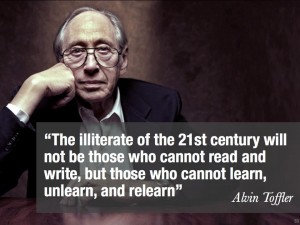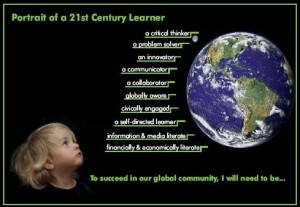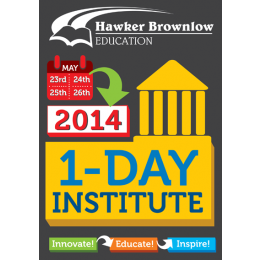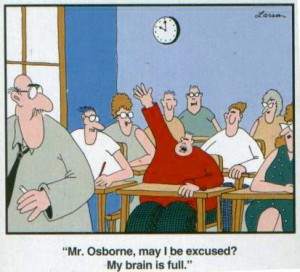Last week I got to hear Charles Fadel speak on 21st Century education. I really enjoyed listening to what he had to say. He has one of those accents that really soothes and you kind of ‘get hooked’ in before you know it. There were many things he said that resonated with me and that I really and truly believe are very important at this time. I was chuffed to hear him say things that I have been trying to say for ages, though not as eloquently as he did the other day. Along with Fadel we also heard comment from the Principal of Haileybury and the Head of Mathematics at John Monash. Between them and the audience there were many comments I thought worthy of publishing below:
 Futurists describe the world as VUCA – Volatile, Uncertain, Complex, Ambiguous
Futurists describe the world as VUCA – Volatile, Uncertain, Complex, Ambiguous- to be successful in the 21st Century one will not need knowledge as much as they will need skills and character attributes
- “Assessments are not a bad thing,” says Fadel, “bad assessments are stupid. How and what we measure makes a difference.”
- The ATAR score is the brick wall of education
- Humanities and Arts is what makes your life worth living!
- Core subjects get you a job BUT the Arts get you through it!
- STEM could become STEAM with the addition of the ARTS!
- Let’s get rid of AusVELS and introduce a superVUCA curriculum!
- It’s not enough to just depend on what kids know about technology, we must be their moral and ethical guides.
- There is a need to break down the resistance to allow kids to be creative in maths. Sadly the VCE Maths study guides are full of content and allow very little scope for creativity.
- Take the risk. Teach kids creativity and thinking and they will ‘get’ the knowledge regardless.
- Teach kids to ask questions.
- Teach kids to SYNTHESISE as they already know how to ‘get’ knowledge but how to bring it all together and make sense of it? That is what they need to learn.
- We are not working fast enough to get kids ready for the 21st Century world!
 And then there are these questions, some others asked, some are mine. I’ll leave them with you to reflect upon- feel free to respond below…
And then there are these questions, some others asked, some are mine. I’ll leave them with you to reflect upon- feel free to respond below…
- What do we teach for?
- Are we adequately preparing our kids for this world?
- Why does there seem to be a disconnect between employers and educators?
- WHAT should students learn?
- What will we do with all this computer power?
Fadel ended with this: “We as teachers are sitting in the driver’s seat – make it happen! Seriously.”
Smart is cool!
Thanks for reading 🙂


